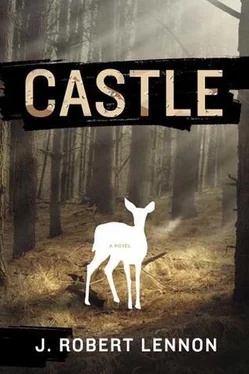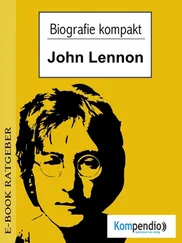And so I was surprised to find her standing before me wearing an expression of profound unease. Even after I asked her to sit down, she slumped crookedly in the chair and declined to look me in the eye as she spoke.
“Private,” I said, feigning displeasure, “state your business.”
“Sir,” she began, wiping her tired and dirty face with a small white hand. “Okay, sir? Me and Lukens and Geary were talking to this guy, right?” Lukens was a big man, a fellow private, and, I believed, a good friend — perhaps a lover — of Private Moss; Geary was one of our translators, a short, nervous boy just out of graduate school. “And it got all complicated, sir.”
“Complicated how, Private?” I asked.
“It’s like… the guy got hostile, sir? And he spit on Lukens? And Lukens didn’t hit him or anything, but he cuffed him to the bars, sir, like on the window? And he’s been there a while, and I don’t know, sir, every time Lukens gets near him the guy spits. He doesn’t spit on me, sir, but Lukens doesn’t want me to have to do all the questioning.”
“Are you certain,” I asked, “that he knows something?”
She began nodding before I had even finished speaking, as though this had already been thought through.
“Uh-huh, yes sir, that is our assessment.”
“What makes you think so?” I asked.
“One of the other detainees said he was al-Qaida, sir.”
“I see.”
“And so we ask him if he’s al-Qaida, and he spits on us and calls us names, sir.”
We sat in silence for a moment, and then I asked her to lead me to the detainee.
The soldiers had set up an empty cell at the back of the north wing as an interrogation room. Its interior could not be seen by the other detainees, but anything that went on there could be heard by all. As we walked down the long hallway, the detainees stared at us through the bars, their expressions angry and deflated. It occurred to me that many of them had been here for months, and I had heard nothing from anyone that indicated they would soon be transferred or freed. I was beginning to think that Camp Alastor was no longer considered temporary — that these people would be here for a long time, and I would be here with them.
The scene in the interrogation cell was grim. Lukens was next to the door, as far from the detainee as possible. He faced the hallway and his features were hard. He stood with his rifle in both hands and his lips pressed together. Geary, the translator, was seated on a metal stool in the far corner of the room, his hands dangling between his knees, his head hung low. The hair was receding on the back of his head and his bald spot gleamed faintly in the yellow electric light. The detainee was pressed to the far wall, underneath the window, with his arms in the air above him, handcuffed to the bars. One of his feet rested on top of the other, and his knees were slightly bent in a kind of plié. He was not much taller than five feet, was thin, and appeared to be around forty. You would not think to look at him that he was capable of much resistance. Yet he had spit on Lukens.
“Moss,” I said. “Uncuff him.”
For just a moment, Moss appeared frightened. Then she nodded, and asked Geary for the stool. Geary got up. She moved the stool over next to the detainee and climbed up on it to undo the cuffs. The detainee turned away, as though in disgust. Soon his wrists were freed. His arms fell to his sides, his legs trembled, and he slid to the ground, where he gulped down a single sob. From down the hallway came the sound of the other detainees shifting wordlessly in their cells. I heard, faintly, the distant familiar sound of whistling.
The detainee appeared to try to move his arms, but for the time being they could do nothing more than twitch. His hands somehow found his lap, where they lay useless, palms up, as though waiting for something to be put into them.
I motioned Geary over to the man, and then knelt down a few feet before him. Behind me I heard Lukens shift position.
“Ask him why he spit on Private Lukens,” I said.
The translator spoke. A moment passed without any reaction from the detainee. Then he tipped his head up, regarded me with sad, empty eyes, and spat.
Without hesitation, Lukens came up behind me, stepped between me and the detainee, and rammed the butt of his rifle into the man’s face.
For a moment, no one moved. The rifle butt had struck him high on the cheek, just below the right eye. The flesh opened up and blood pooled in a ragged line. The man tried to lift his hands to cover the wound, but he couldn’t get his arms up all the way, and blood began to drip onto his lap. Geary and Moss stared in astonishment.
“Get the medic,” I said to Geary. And to Lukens, I said, “Wait for me in my office, soldier.”
Lukens nodded. There was embarrassment in his face, but not fear or remorse. He turned on his heel and walked out, throwing shut the cell door behind him.
I went to the detainee and pressed a clean handkerchief to his face. Soon the medic arrived and took over. I motioned for Moss and the translator to follow me, then ordered another soldier out of the hallway and into the cell with the medic. A few minutes later, I had the three of them, Moss, Lukens, and Geary, crowded into the office. I stood beside my desk. The two chairs were empty. I turned to Lukens.
“What on earth happened in there?” I asked him.
“He can’t do that to you, sir.”
I felt a small shiver of fear touch the small of my back. “He did nothing to me, soldier. He didn’t even have anything to spit. When was the last time you gave him water?”
Lukens and Moss looked at each other.
“He didn’t ask for water, sir,” Moss said.
“The guy wouldn’t even answer our questions, sir,” Lukens said, his voice louder now, and angrier. “All we wanted to know was who he knows in Dora who’s al-Qaida. It’s obvious he knows people. We were just following orders.”
“I didn’t order you to hit him.”
“I was just trying—”
“Private!” I shouted, and was surprised to find myself trembling. I did not know what I was doing. I could feel the operation getting away from me. Perhaps it was already gone.
“Sorry, sir.”
I glared at Geary and Moss. Their faces were tired, and they were frowning. All of us wanted to be somewhere else. To the translator, I said, “What are you hearing?”
Geary shrugged. “They don’t understand what they’re here for. They keep asking when they’re going to be released. They ask if we think they’re criminals.”
“They are criminals!” Lukens said suddenly.
“Private,” I said, “wait outside.”
Lukens opened his mouth, then shut it. He turned and marched out, slamming the door behind him. The three of us looked at it for a moment, then I turned back to Geary.
“Go on.”
“There’s nothing to say, sir.” He rubbed his face with both of his hands. “Maybe a few of them know something — about the insurgency or something — but I’m not sure.” He paused again, swallowing air. “I’ve never done this kind of thing before. I don’t know how to put it so they’ll talk. Or even if there’s any way to get them to. I’m just… I…”
His voice trailed off, and he stared at the floor.
“Sir?” It was Moss. “Most of us are with Lukens, sir.” She spoke quietly, as she had done the night she told me about her goals in the military. She had never seemed younger to me than she did now. “I mean, some of these people, they’re obviously not al-Qaida or anything. But, I mean, it’s a war, sir. They’re the enemy.”
Geary was shaking his head. “But they don’t know they’re the enemy. They don’t know why they’re here.”
“Some of us think they’re just playing dumb, sir,” Moss went on.
Читать дальше











